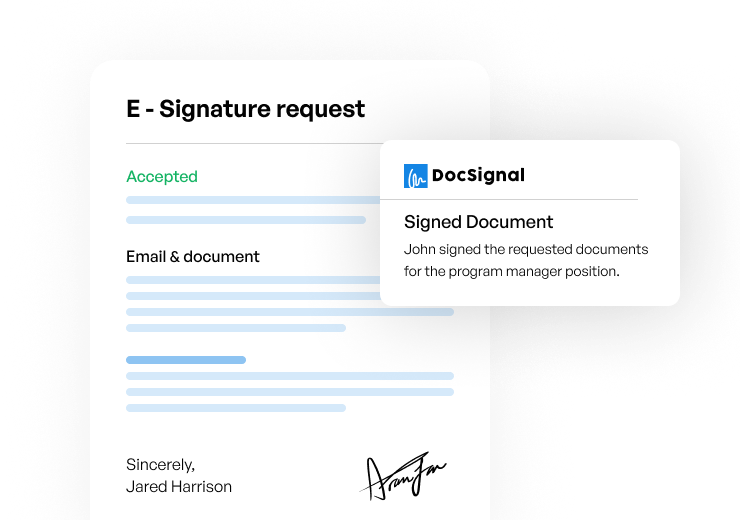













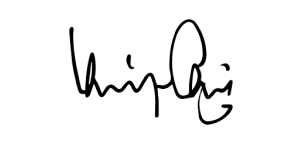

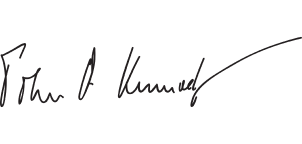

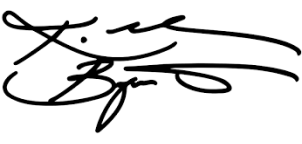





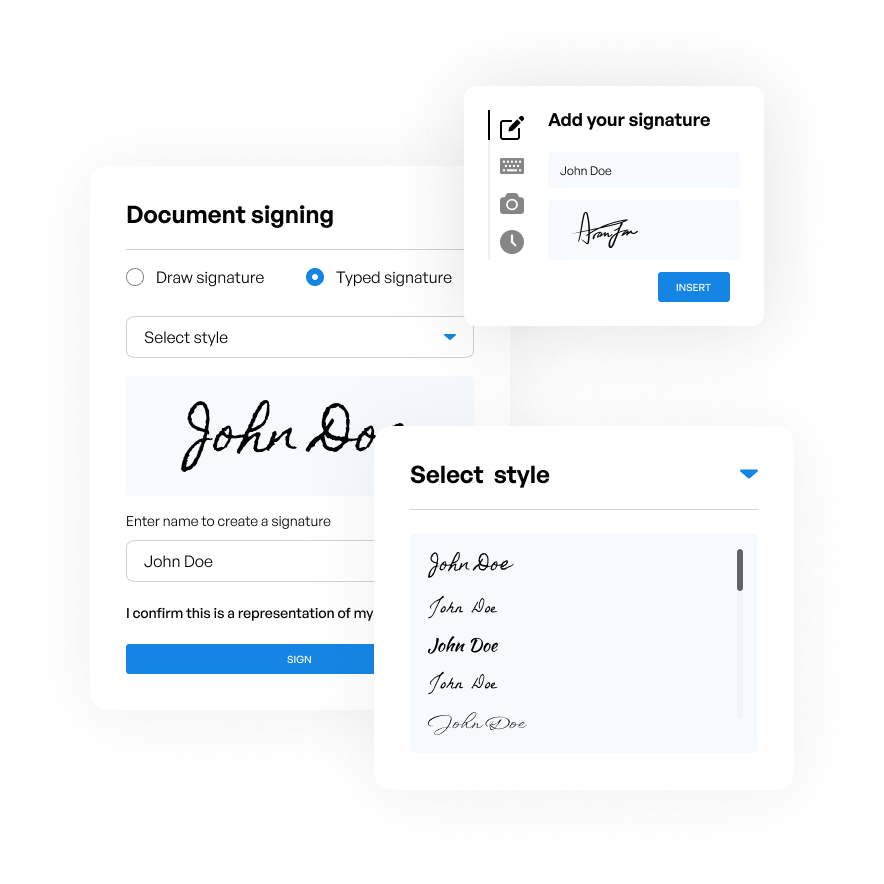
A signature generator is an online tool designed to create electronic representations of your handwritten signature. These generators offer a convenient way to produce digital signatures, which can be used across
various documents and platforms.
Online signature creators facilitate the creation of e-signatures, a digital version of your handwritten signature. This tool is essential in today's digital landscape, where signing documents electronically has become a norm.
E-signatures streamline processes by eliminating the need for physical documents, thereby enhancing efficiency.
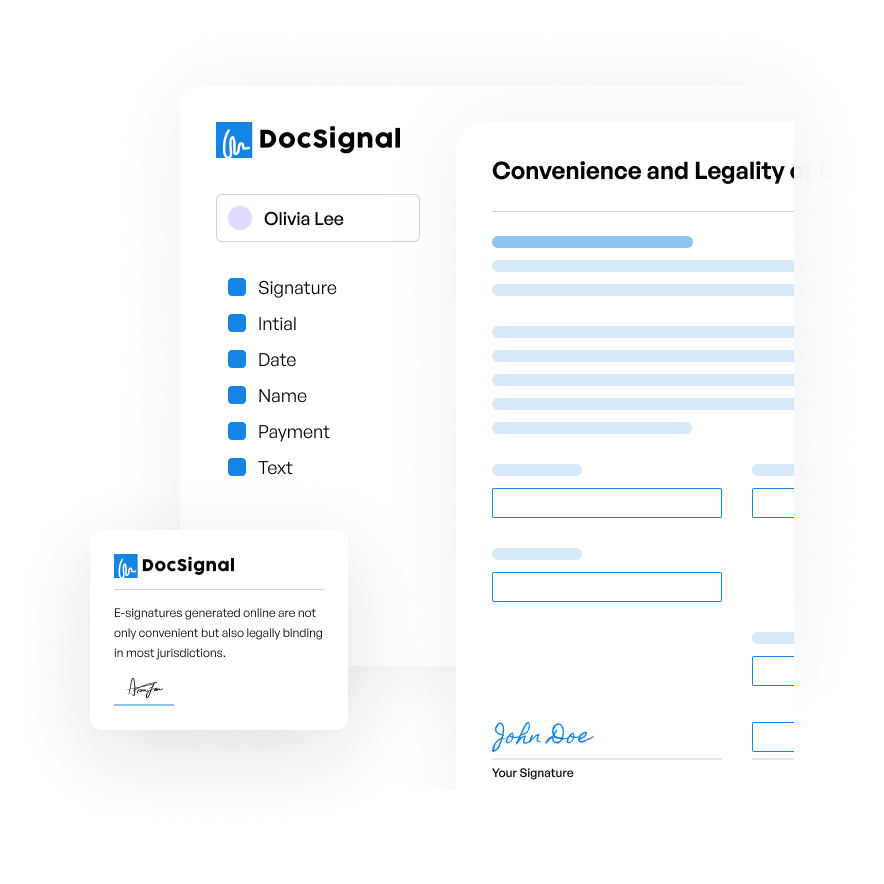
E-signatures generated online are not only convenient but also legally binding in most jurisdictions. They provide a secure, verifiable, and efficient way of signing documents. This method of signing is recognized and accepted for various legal, personal, and business documents, offering an equivalent level of validity as traditional handwritten signatures.
The use of digital signatures has been bolstered by laws like the ESIGN Act in the United States and similar regulations worldwide, ensuring their legal standing.




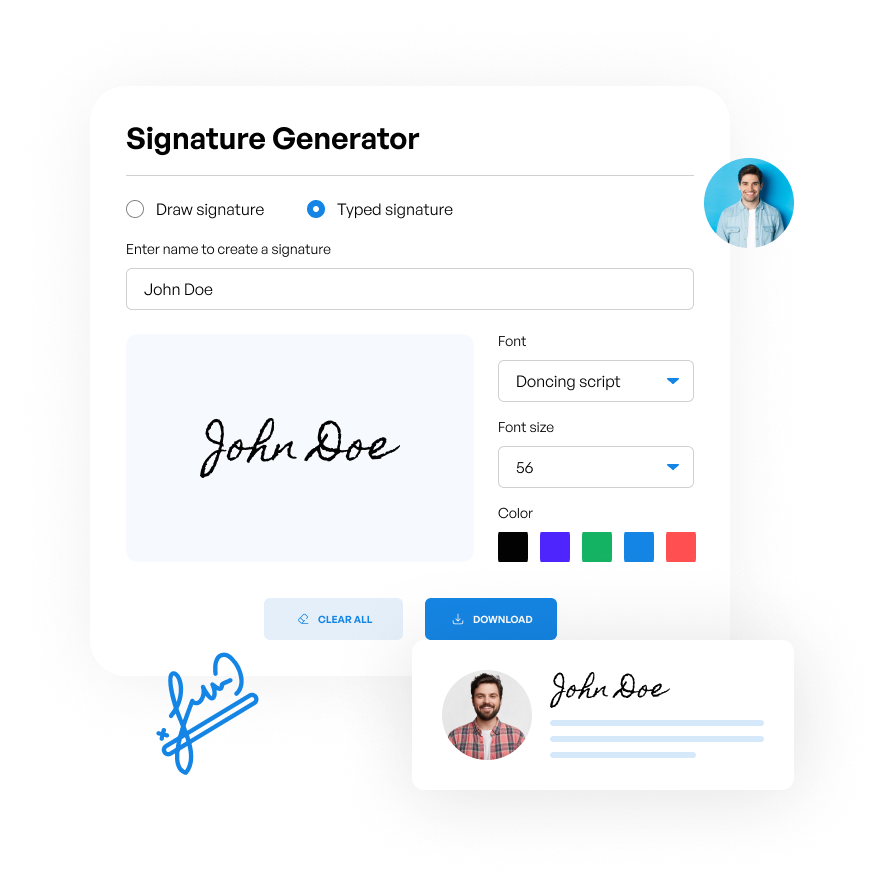
With DocSignal's signature maker, whether you need a signature for formal documents or something more creative, the tool offers the flexibility to create it.
The aim is to combine ease of use with customization, ensuring that each signature is both functional and a true reflection of the user's identity.
Try using DocSignal Handwritten Signature Generator now.
An electronic signature, often shortened to e-signature, is a digital form of a signature used for electronic documents.
Unlike handwritten signatures, e-signatures are used in digital formats, such as PDFs or online forms.
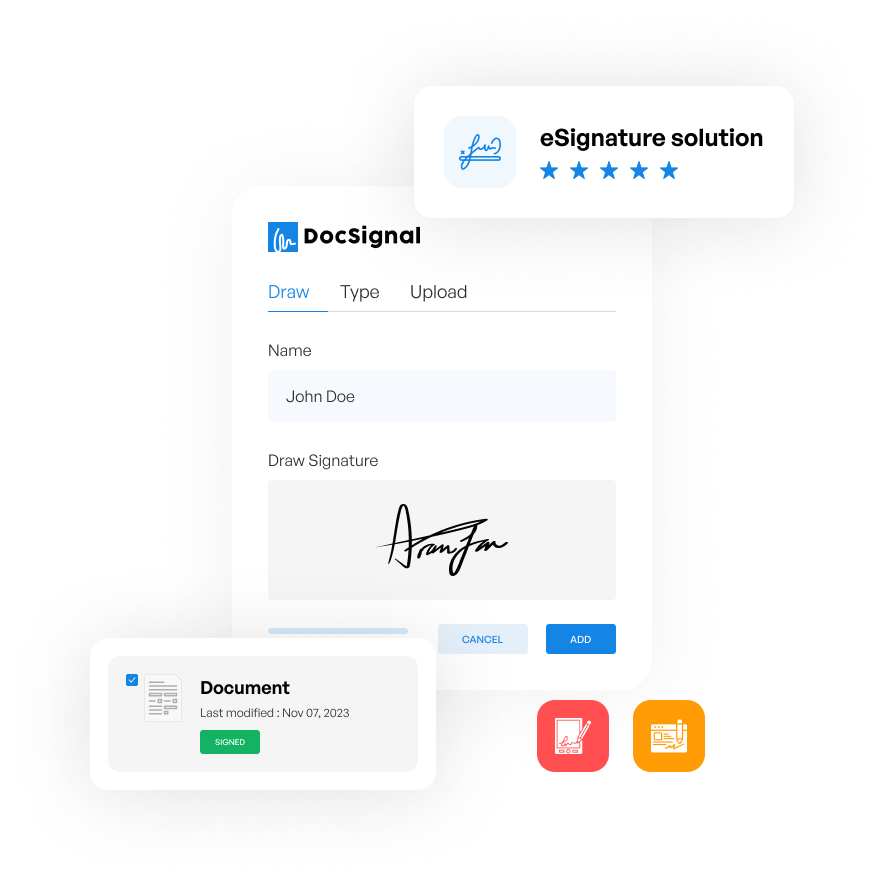



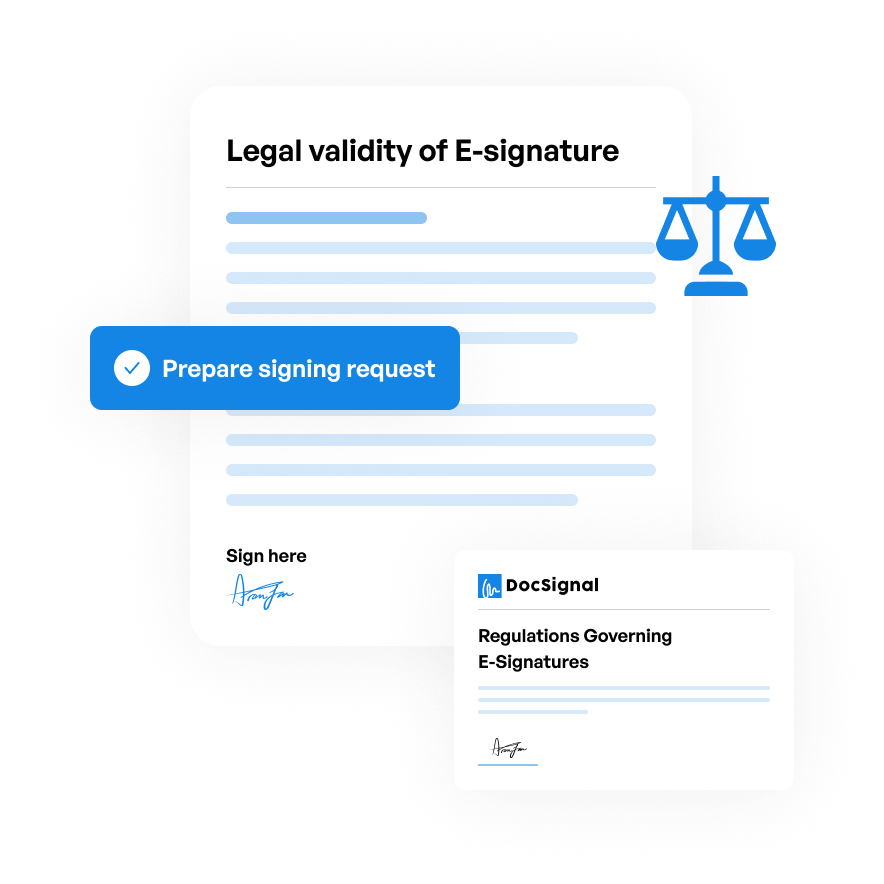
Electronic signatures have gained widespread legal acceptance
globally. They are considered as legally binding as traditional handwritten signatures in most jurisdictions.
The enforceability of e-signatures in legal documents hinges on their ability to show the signatory's intent and consent.
Several laws and regulations govern the use of e-signatures, ensuring their validity and security. Notable among these are:
- The Electronic Signatures in Global and National Commerce Act (ESIGN) in the United States.
- The Electronic Identification and Trust Services (eIDAS) regulation in the European Union.
- Similar laws in other countries that recognize the legal validity of e-signatures.
These regulations affirm that e-signatures created using tools like Signature Generator are legally enforceable, provided they meet specific criteria such as consent, intention, and appropriate security measures.




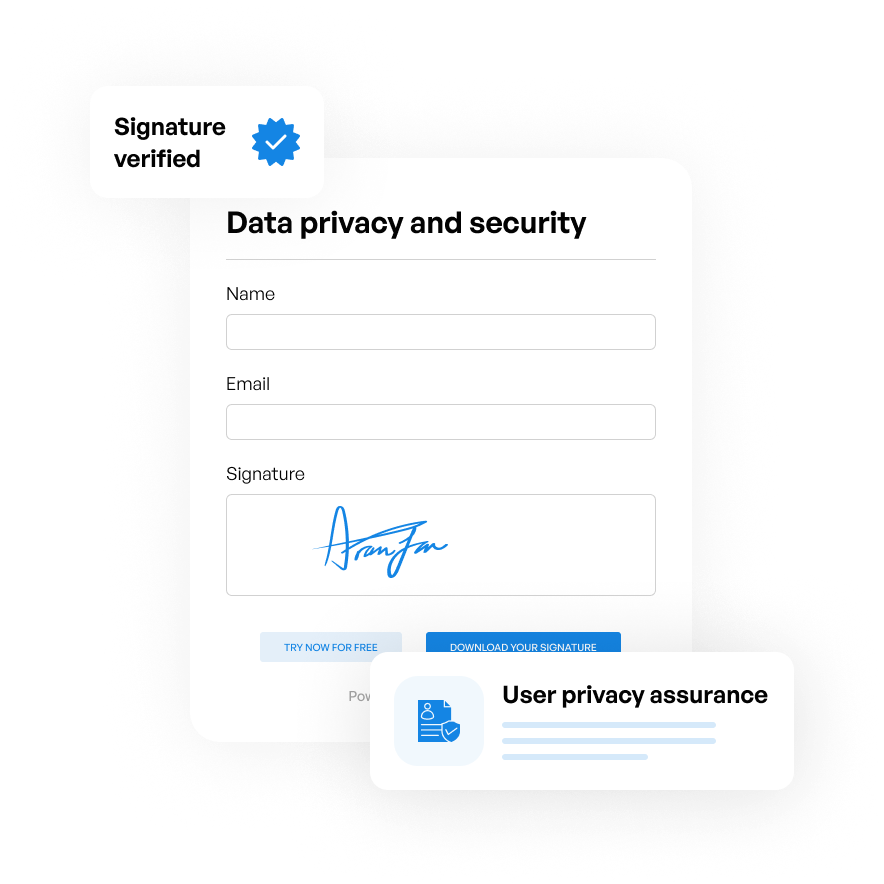
Signature Generator prioritizes user privacy. When creating digital signatures, personal data is handled with strict confidentiality.
The tool ensures that user information and signature data are not misused or exposed to unauthorized parties.
A key feature of Signature Generator is its policy on data storage. The tool does not store signatures on its servers. Once a user creates and downloads their signature, it exists only in their possession. This policy is crucial for protecting sensitive personal data and maintaining the trust of users.
By focusing on these privacy and security aspects, Signature Generator provides a safe and reliable environment for creating and managing digital signatures.
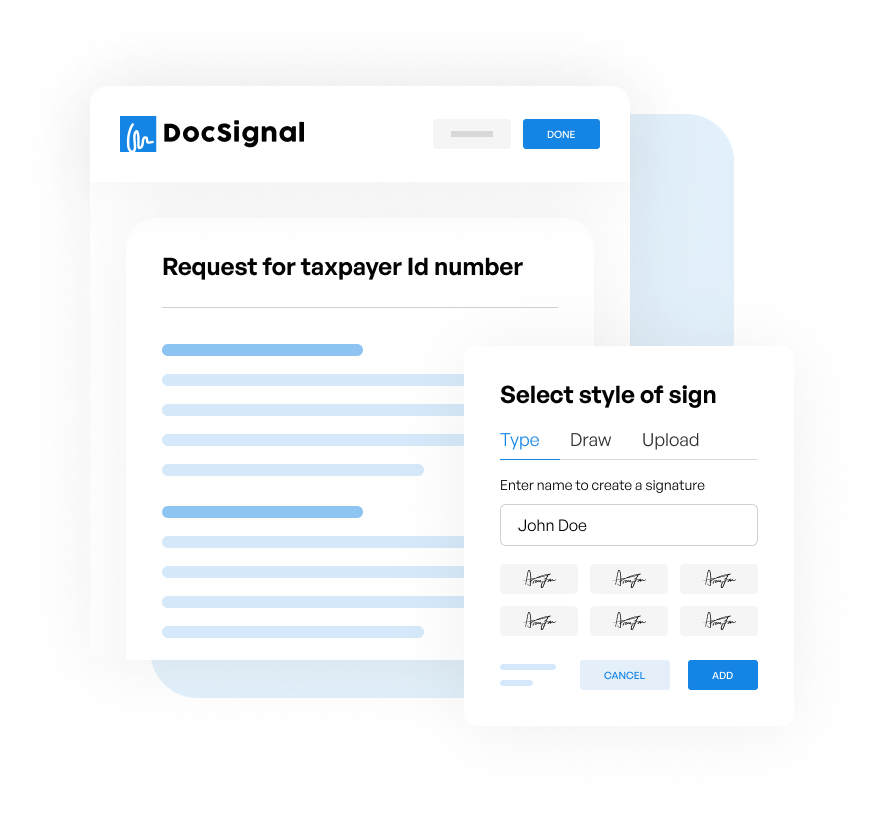

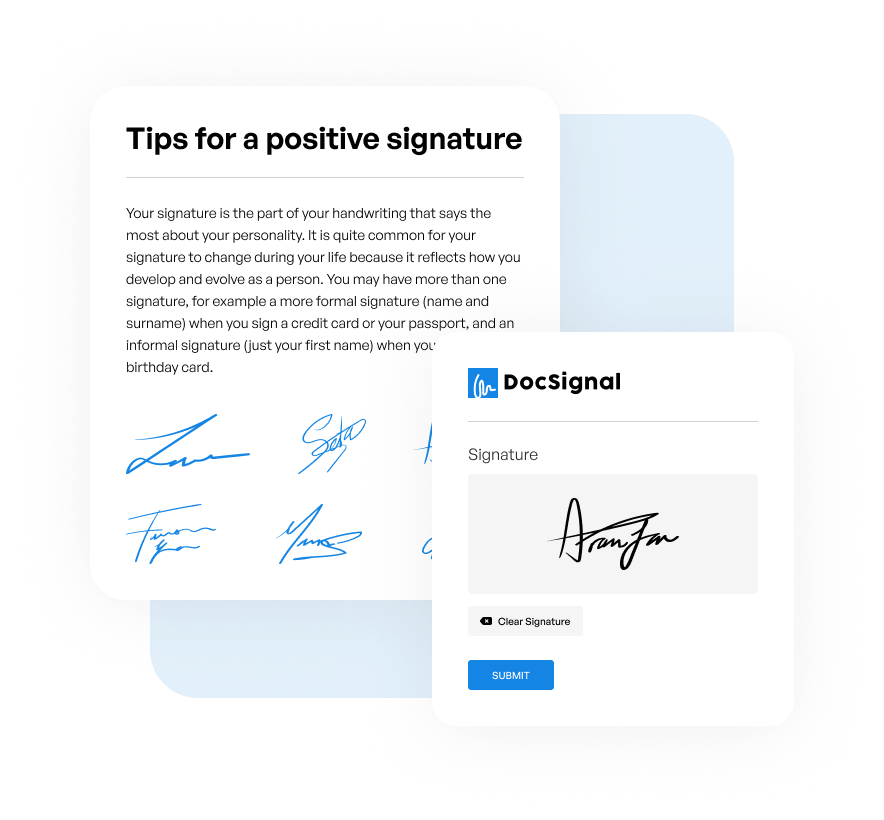
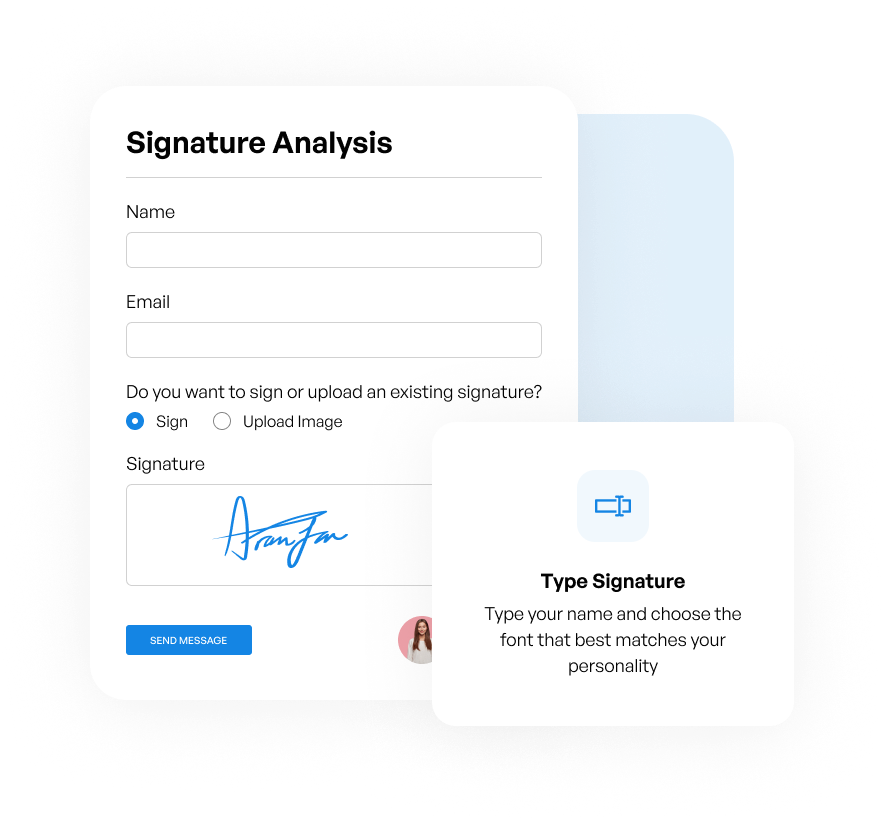
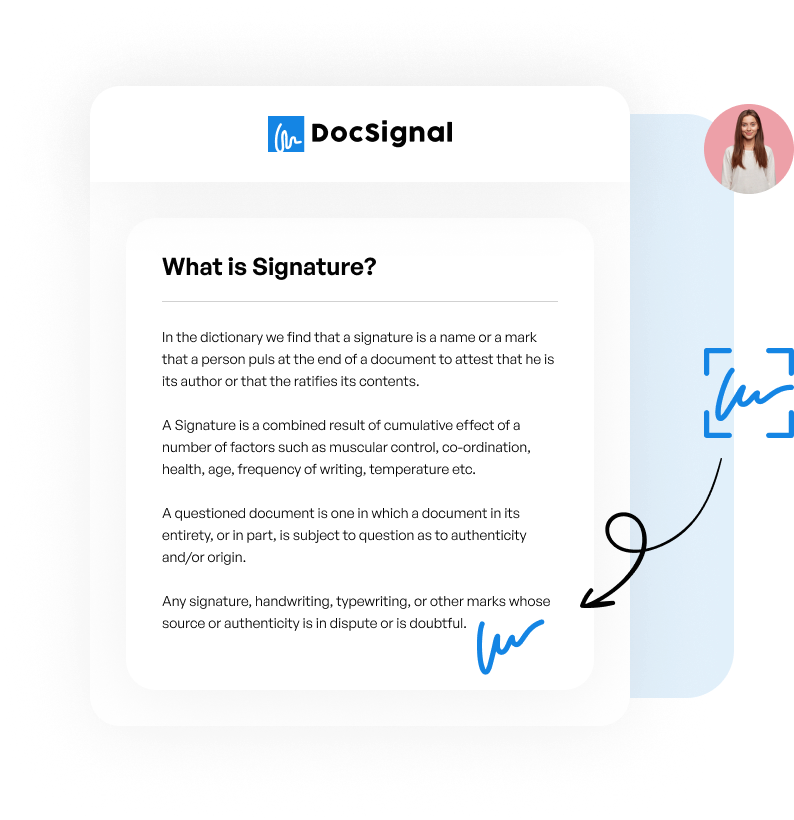

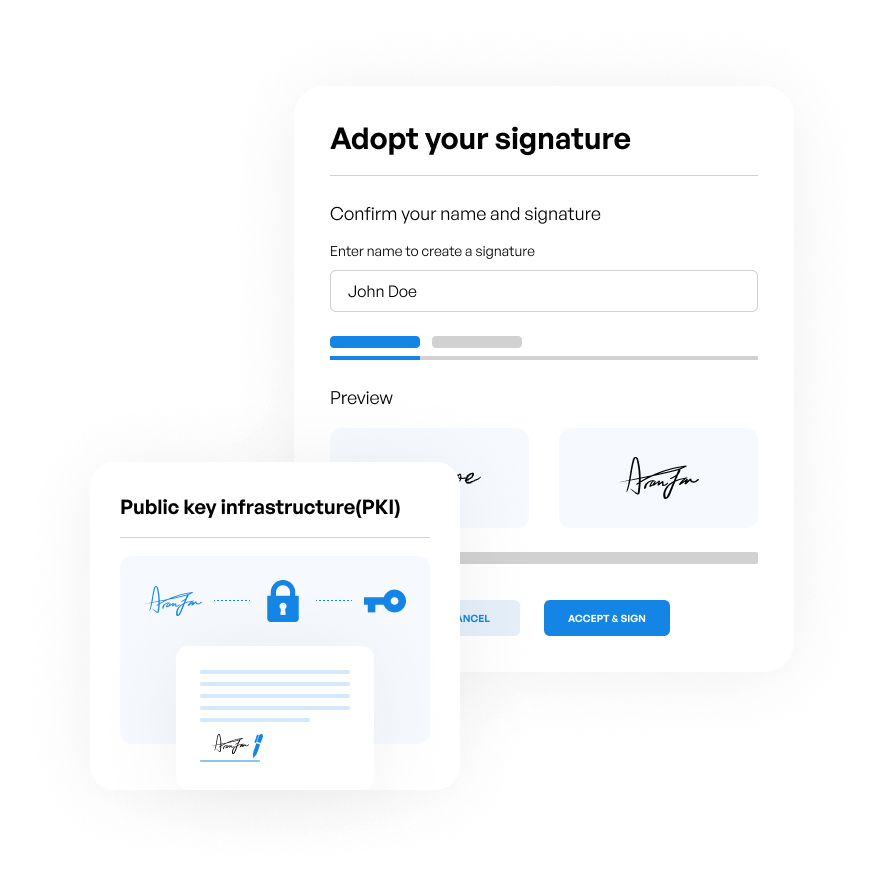
Digital signatures are underpinned by Public Key Infrastructure (PKI), a framework that ensures the highest level of security. PKI uses a pair of keys – one public and one private – for encryption and decryption.
The private key, which is securely stored by the signer, is used to create the digital signature. This key is unique to the signer, making the signature difficult to forge. Additionally, digital signatures employ algorithms to generate a hash code unique to each document. Any alteration in the document post-signing changes the hash code, indicating tampering.
Another crucial aspect is the use of certificate authorities (CAs). CAs validate the identities of entities and issue digital certificates, further fortifying the trustworthiness of digital signatures. These certificates contain the public key and are essential for the verification process.
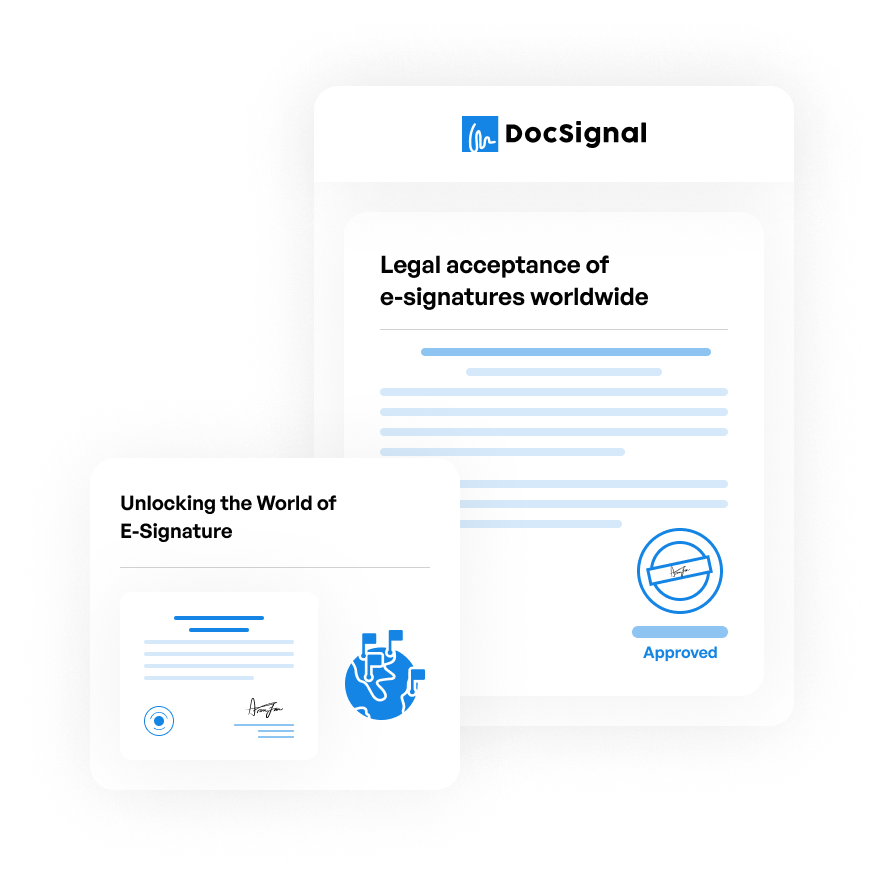
The legal acceptance of e-signatures varies by country, but there has been a growing global consensus on their validity. In the United States, the ESIGN Act and UETA (Uniform Electronic Transactions Act) have provided a legal framework for electronic signatures since the early 2000s.
Similarly, the EU's eIDAS (Electronic Identification, Authentication and Trust Services) regulation standardizes e-signatures across member states, ensuring they have the same legal standing as handwritten signatures.
Countries like India, Australia, Canada, and many others also have laws in place that recognize the validity of digital signatures. These laws typically require that the signature is uniquely linked to the signer, capable of identifying the signer, created using means that the signer can maintain under their sole control, and linked to the document in a manner that any subsequent change in the data is detectable.
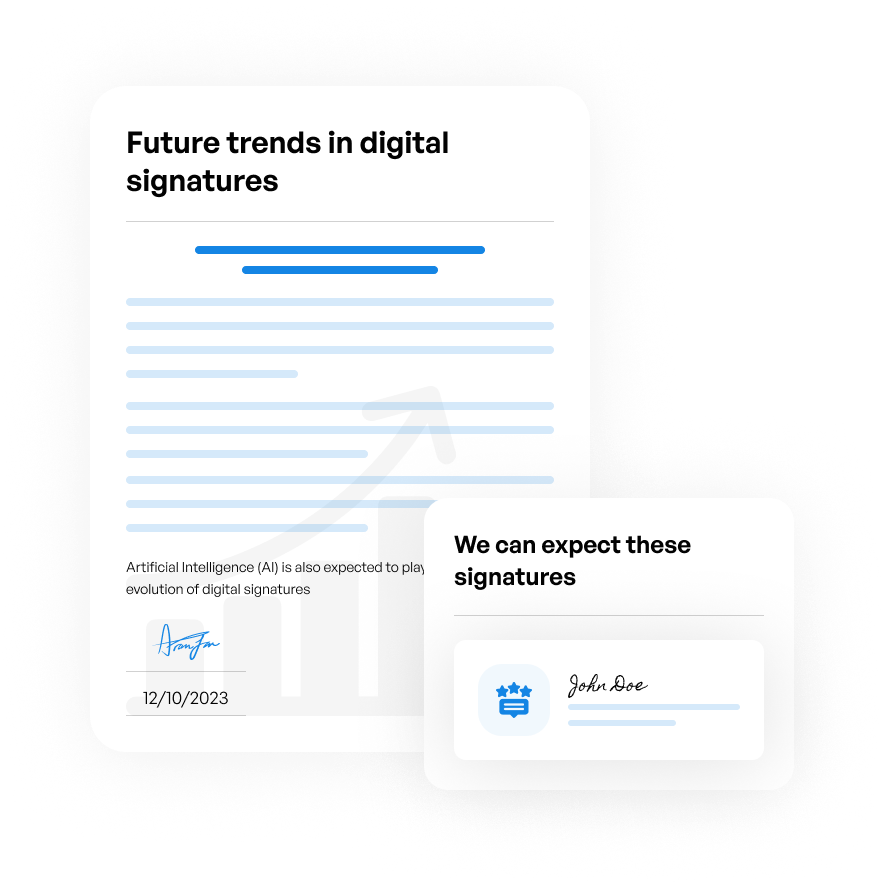
The future of digital signatures is poised to be influenced by advancements in technology and evolving legal landscapes. One emerging trend is the integration of biometric data, such as fingerprints or retinal scans, into the digital signing process. This integration could offer even more robust security and personalized authentication. Blockchain technology is another area that's beginning to intersect with digital signatures.
By recording digital signatures on a blockchain, the immutability and transparency of the signing process could be significantly enhanced. This method could further ensure the integrity of the document and the identity of the signer. Artificial Intelligence (AI) is also expected to play a role in the evolution of digital signatures. AI could be used to detect fraudulent attempts and analyze signing patterns, adding an additional layer of security.
Digital signatures represent a significant leap forward in document authentication, providing security, efficiency, and legal compliance. As technology continues to advance, we can expect these signatures to become even more integrated into our digital lives, offering unparalleled security and convenience.

